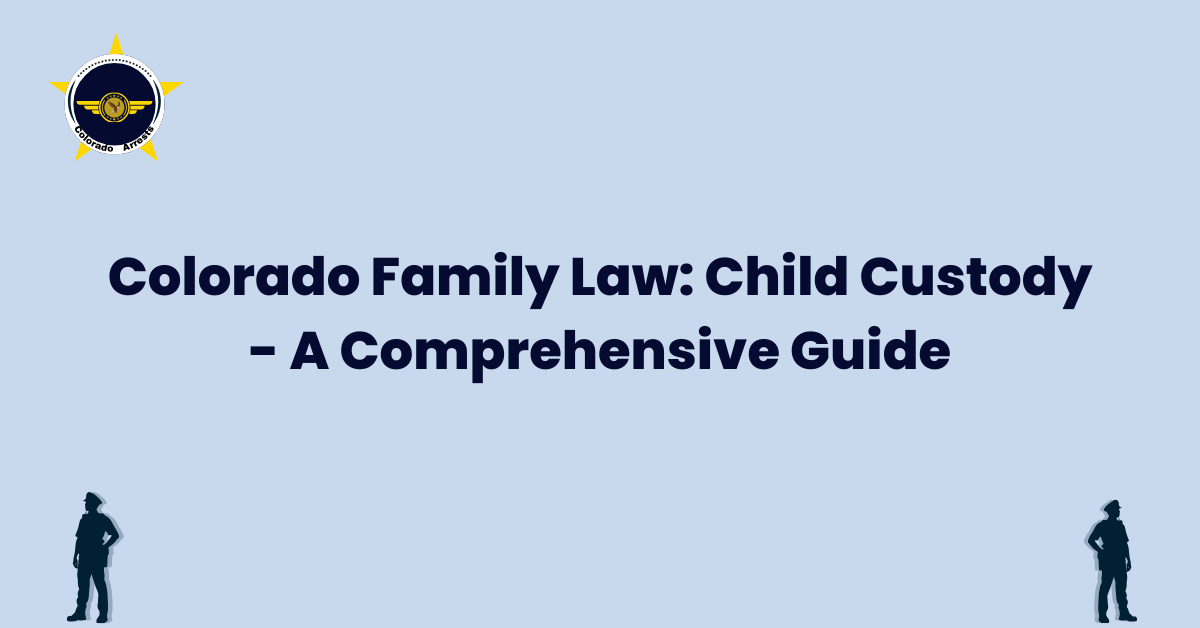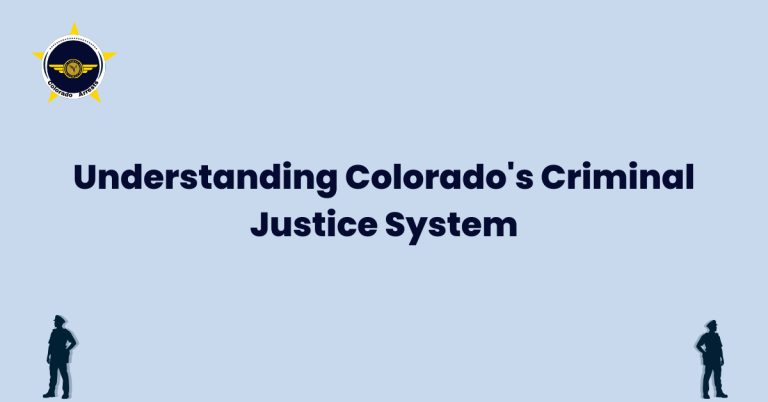Colorado Family Law Child Custody A Comprehensive Guide
Child custody is an important and often complex topic when it comes to family law in Colorado. Whether you’re going through a divorce, separation, or any other legal process involving children, understanding the laws and regulations surrounding child custody is crucial. In this comprehensive guide, we will delve into the various aspects of child custody, providing you with valuable information to navigate this challenging terrain.
From understanding the different types of custody arrangements to exploring the factors that influence custody decisions, this guide aims to equip you with the knowledge necessary to make informed decisions that prioritize the best interests of your child. We will explore the legal framework surrounding child custody in Colorado, including the relevant statutes and case law that shape the outcomes of custody disputes.
Navigating Custody Arrangements
When it comes to child custody in Colorado, there are several types of arrangements that parents may consider. These include sole custody, joint custody, and split custody. Each arrangement has its own implications and considerations, which we will explore in detail to help you make the best decision for your child.
Factors Influencing Custody Decisions
Colorado courts take various factors into account when determining child custody arrangements. Understanding these factors can help you prepare a strong case and ensure that the best interests of your child are prioritized. We will discuss the key considerations that judges evaluate and provide insights on how to present your case effectively.
The Legal Framework in Colorado
Colorado has specific laws and regulations that govern child custody cases. Familiarizing yourself with these legal provisions can help you navigate the custody process with confidence. We will examine the relevant statutes and case law that shape custody decisions, giving you a comprehensive understanding of the legal landscape.
Exploring Parenting Plans
Parenting plans play a crucial role in child custody proceedings. These plans outline the specific arrangements and responsibilities of each parent, including visitation schedules, decision making authority, and communication protocols. We will guide you through the process of creating a comprehensive parenting plan that meets the unique needs of your family.
Mediation and Alternative Dispute Resolution
In some cases, parents may opt for mediation or alternative dispute resolution methods to reach a custody agreement outside of court. These methods can offer a more collaborative and less adversarial approach to resolving custody disputes. We will discuss the benefits of mediation and provide tips on how to navigate this process successfully.
Enforcement and Modification of Custody Orders
Once a custody order is in place, it is essential to understand how to enforce and modify it if circumstances change. Whether you need to address issues of non compliance or seek modifications to the existing custody arrangement, we will provide guidance on the legal steps involved and the factors that courts consider when making modifications.
FAQs
What is child custody?
Child custody refers to the legal rights and responsibilities of parents or guardians in making decisions for their child’s welfare and well being. It includes physical custody, which determines where the child will live, and legal custody, which involves making important decisions regarding the child’s education, healthcare, and upbringing.
What are the different types of custody arrangements in Colorado?
In Colorado, there are two main types of custody arrangements_ joint custody and sole custody. Joint custody involves both parents sharing the physical and legal responsibilities of raising the child. Sole custody, on the other hand, grants one parent the primary decision making authority and physical custody, while the other parent may have visitation rights.
How is child custody determined in Colorado?
Child custody decisions in Colorado are made based on the best interests of the child. The court considers various factors, including the child’s relationship with each parent, the ability of each parent to provide a stable and nurturing environment, the child’s wishes (if mature enough), and any history of domestic violence or substance abuse. The court may also consider the child’s relationship with siblings and extended family members.
Can grandparents or other relatives obtain custody of a child?
Yes, under certain circumstances, grandparents or other close relatives may seek custody of a child. The court will evaluate the relationship between the child and the relative, the wishes of the child’s parents, and other relevant factors. However, it is generally presumed that the child’s parents are best suited to make decisions regarding custody.
Can child custody arrangements be modified?
Yes, child custody arrangements can be modified if there is a significant change in circumstances that warrants a modification. Examples of such changes may include a parent’s relocation, a change in the child’s needs, or a parent’s failure to comply with the current custody arrangement. However, any modification must still be in the best interests of the child.
What is the role of mediation in child custody disputes?
Mediation is a process in which a neutral third party helps parents reach an agreement regarding child custody outside of court. It can be a useful tool for resolving conflicts and finding mutually satisfactory solutions. Mediation allows parents to maintain control over the decision making process and can often result in more cooperative and amicable custody arrangements.
Child custody is an important and often complex topic when it comes to family law in Colorado. Whether you’re going through a divorce, separation, or any other legal process involving children, understanding the laws and regulations surrounding child custody is crucial. In this comprehensive guide, we have delved into the various aspects of child custody, providing you with valuable information to navigate this challenging terrain.
From understanding the different types of custody arrangements to exploring the factors that influence custody decisions, this guide aims to equip you with the knowledge necessary to make informed decisions that prioritize the best interests of your child. We have explored the legal framework surrounding child custody in Colorado, including the relevant statutes and case law that shape the outcomes of custody disputes.







